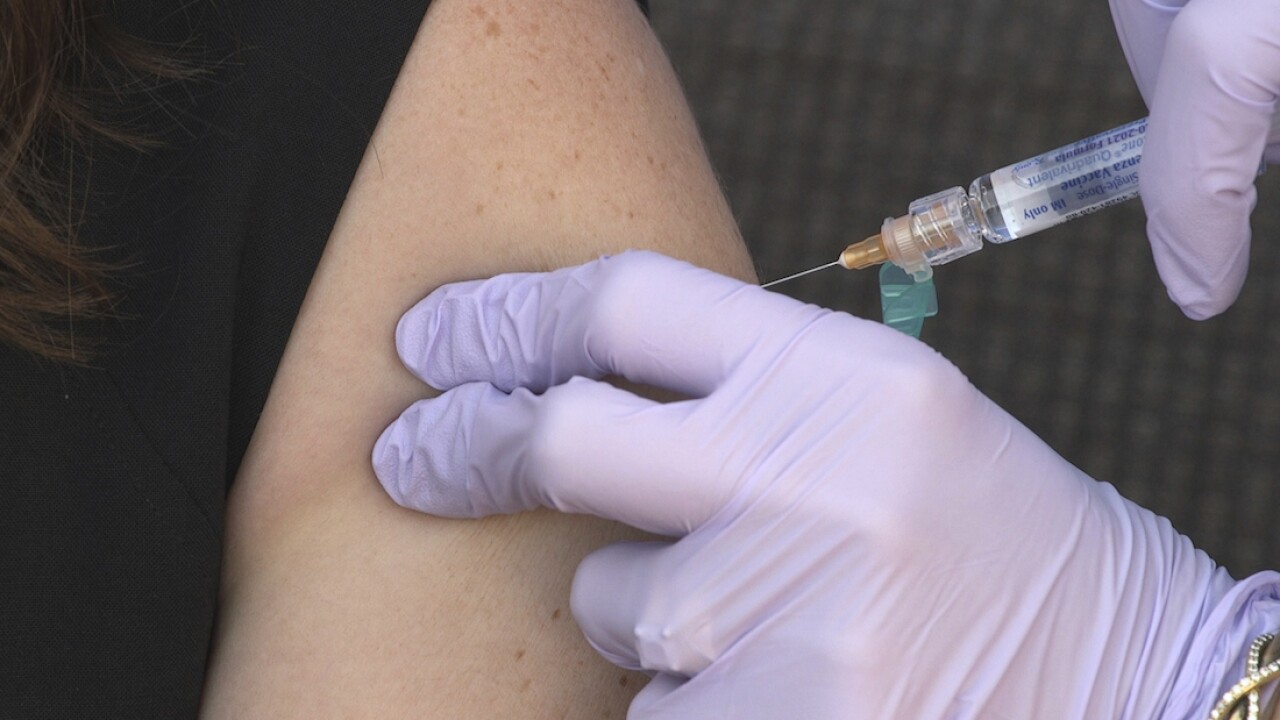The CDC and FDA are now recommending additional doses of vaccine for some people, and Ochsner Health offered a briefing today to help get the word out.
Ochsner facilities began giving third shots to patients on Friday, and continued today.
The organization offered information and answered questions about the issue; participating were Dr. Sandra Kemmerly, System Medical Director of Hospital Quality, Ochsner Health; Dr. Katherine Baumgarten, Medical Director of Infection Control and Prevention, Ochsner Health; Debbie Simonson, Vice President, Pharmacy Services, Ochsner Health; and Matthew Malachowski, Director, Pharmacy, Population Health & Ambulatory Services, Ochsner Health.
These shots are "additional doses," not boosters, and are only for specific people - because that's as far as the research has gotten as of today, Kemmerly explained.
Studies have been done indicating that people who are moderately to severely immunocompromised can benefit from the additional dose, Kemmerly explained.
Patients who may be eligible took either the Pfizer or the Moderna vaccine, and had their last shot at least 28 days ago, she said. So far, there's not enough data to indicate if those who got the Johnson & Johnson shot can benefit from an additional dose, she added.
In general people who are undergoing active cancer treatment, have tumors or cancer of the blood, are an organ recipient taking immunosuppressive drugs, had a stem cell transplant within the past two years and taking suppressive medications, with a primary or severe immunodeficiency disease, have AIDS, or are taking more than 20 mg daily of prednisone or an equivalent could be eligible, she said. If you got the Pfizer vaccine, you can get the third shot if you're 12 or over. If you got the Moderna vaccine, you have to be 18 or older.
If you have any questions at all about your eligibility, you should talk to your doctor, she said.
"If a patient has a question, they need to talk to their physician. Their doctor knows that case better. The individual physician caring for that pt may have additional facts that impact their situation," she said. "If you have any questions at all, you should discuss with your doctor. There are various degrees of suppression. It's hard to make crystal clear recommendation because so much depends on the patient and their illness. Everyone's own risk needs to be assessed, and who can do that better than the doctor who is caring for them?"
In order to get your third shot, you don't need a prescription but you do have to fill out some forms that the state Department of Health has created. You can find the form here; it also suggests that patients discuss the need for a third shot with their doctor.
In the New Orleans area, you can go to Ochsner "My Chart" to set up your appointment and provide the necessary details. If you got to a walk-up vaccination site, the registration staff there will help you through the process.
In Acadiana, go here or if you're a regular patient use the scheduling system you use for your Ochsner appointments.
As Baumgarten explained, the additional dose is to help patients whose immune system didn't have a robust reaction to the first two doses of vaccine.
"It's given to people who may have compromised immune systems to boost their immunity," Baumgarten explained. "We found that after two doses, their immune response was a little lower than expected. We also are seeing that a lot of our hospitalized breakt-through cases are immunocompromised. So that's another reason for these patients to get that additional dose."
A "booster" is a different approach for a different situation, she explains.
"That's for people who have had a normal response but their immunity wanes over time and they need a little boost," she said.
On the issue of side effects, Baumgarten said the most frequent reports after a third dose are similar to those reported after the first two: arm pain, low grade fatigue, etc. However, those side effects are being monitored closely, she added.
She said that, while she had no numbers to report she said that many vaccinated people who ended up critically ill with COVID and in ICU have other conditions, are elderly, or have risk factors that make them more vulnerable to the virus.
Kemmerly said she does believe that, eventually, third doses will be offered to other patient groups.
"I don't know if it will be for people of a certain age, or the time since they've had their vaccination, or certain disease conditions, but I do anticipate that, in the future, we will see more," she said.
When asked, she said she hasn't seen any information on whether or not a third dose would be dangerous to a healthy vaccinated person.
"We don't have data to say if there's any danger for healthy people getting a third dose," she said. "But we do know these folks do not have the same level of response and that's why they're eligible for the third dose."
The CDC and FDA are being deliberate and careful about recommendations, and basing those recommendations on the data that's coming in, she said.
Initially, the FDA and CDC will be focused on the most vulnerable populations, she said.
Currently, Baumgarten added, the CDC estimates that about 3 percent of the U.S. general population is eligible for the third dose.


